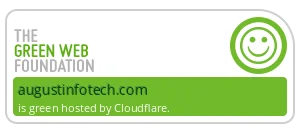Introduction
In the past two decades, remote project management has transitioned from a niche practice to a mainstream necessity. It has been influenced by technological advancement, the changing work culture, and the need for flexibility in an increasingly globalized world. And now, as we go further into 2024, remote project management has never been more relevant; it presents opportunities and challenges. This blog discusses the history and evolution of remote work, touching on essential trends, technological innovations, and strategies for success in the area. The future of remote project management is bright, offering numerous benefits and promising further advancements.
The mid-2010s marked the rise of integrated project management platforms—Asana and Trello, amongst others. Each delivered a single, integrated solution to capture tasks, timelines, and conversations. The turning point arrived with the pandemic at the start of 2020, which compelled organizations worldwide to start working remotely overnight. That game changer was backed by massive companies’ investments in remote work infrastructure and working methods.
History
The journey for project management started with the most basic of tools: emails and teleconferences. At the turn of the 2000s, managers veered towards long email threads, telephone calls, and personal meetings to make things happen. It was the time when the internet was innovated, and digital tools soon followed, gradually changing the typical trends of project management.
The mid-2010s marked the rise of integrated project management platforms—Asana and Trello, amongst others. Each delivered a single, integrated solution to capture tasks, timelines, and conversations. The turning point arrived with the pandemic at the start of 2020, which compelled organizations worldwide to start working remotely overnight. That game changer was backed by massive companies’ investments in remote work infrastructure and working methods.
Technological advances
In 2024, technological innovation will continue to assume center stage in remote project management. Recently, AI and machine learning tools have become very important tools for working with predictive analytics, automation, and decision-making capabilities in project management.
Today, Monday.com and Wrike both incorporate AI-based analytics that can predict project delays, suggest resource allocation, and automate routine tasks. A Project Management Institute report indicated that the integration of AI into project management has led to a 30% increase in project efficiency.
Further, support for transformative collaboration would come from virtual and augmented reality. These technologies bring with them the experience of immersive virtual meetings and virtual project management workspaces where team members interact in 3D. A Gartner survey forecasts that, by 2028, VR and AR will be robust remote project management tools that enhance project collaboration and engagement. All these indicators work, indicating that this is the future of project management.
Changing working culture
Work culture has also changed a lot. The traditional 9-to-5 office environment is quickly losing its ground and making way for flexible and hybrid work models. A study by FlexJobs showed that 58 percent of workers now prefer a hybrid model, combining remote and in-office work.
There are several advantages to working remotely. However, some related abilities include providing flexibility to employees and saving time spent commuting. This development also provides companies access to the global workforce, such as offshore developers. On the other hand, the process also needs fixing, such as keeping the team cohesive, handling remote work burnout, and developing clear communication. The challenges, therefore, can only be dealt with by adopting remote work best practices.
Statistics prove that working from a distance will make the process more productive. According to a study by Stanford University, remote work increases productivity by 13%. This also means, as this study proved, one must get structured communication with clearly drawn lines.
Strategies for success
Remote project success can only be achieved when and if there is effective communication and collaboration between project partners through tools such as Slack, Microsoft Teams, and Zoom, which will enable and allow for real-time communication through virtual meetings. Ricardo Vargas, a project management expert, said: “With the right mix of cloud-based project management tools and clear communication protocols, project managers can lead teams spread across the globe just as effectively as those in the same office.”
Adopting Agile methodologies can also enhance remote project management. Agile practices are done with such emphasis on flexibility, iterative progress, and continuous feedback; hence, they are very appropriate for a remote team. Regular check-ins, daily stand-ups, and sprint reviews keep persons on track and aligned with the projects amongst the team members, thus encouraging remote team collaboration.
Another critical aspect of successful remote project management is fostering a culture of transparency and trust. A project manager’s duty is to ensure that everyone on the team has access to any related information and feels comfortable expressing their concerns. Tools like Notion and Confluence can be used for knowledge sharing and documentation, making the information base easy to access. This emphasis on transparency and trust reassures team members of the effectiveness of these principles in remote project management.
Statistics underline this. According to a McKinsey report, a company with a good remote project management practice is 2.5 times more likely to be a top performer. This certainly raises the need for strategic planning with strong tools and, of course, a culture centered on the continuous improvement of project management—and that translates to ‘hybrid project management.’
Case studies
At August Infotech, we transitioned to a remote-first model in 2020. The project completion rate went up by 25% with the implementation of robust project management tools and a culture of transparency. The success was attributed to project management software, regular virtual check-ins, weekly project meetings, a solid monthly PMRS system, and focusing on employee well-being.
Another example is provided by Scalable Software, an IT services company that applied the hybrid work model for staff to increase productivity and well-being. They used the Acumen platform with insights into digital experiences and ensured optimized collaboration. The company being attended to equally regarding the technical and human sides has necessitated perfect communication with no risks of burnout.
This strategic approach balances work and life and is engineered to improve efficiency.
According to Accenture, companies with effective hybrid models promote stronger work relationships and better mental health outcomes.
The above-discussed case studies reflect the necessity of attuning to prescient circumstances and utilizing technology to strengthen remote project management. The triumph of the companies in focus above attests to the ability of remote work to boost productivity and innovation, thereby indicating the significance of project management innovations.
Future trends
The future of remote project management looks promising, with AI-driven tools and immersive technologies set to dominate the landscape by 2030. For example, AI might be used to develop a tailored project dashboard that provides insights according to individual team interests or preferences. Virtual and augmented reality will become standard for virtual meetings, offering more intensive and interactive experiences. These exciting advancements in remote work technologies are set to revolutionize the field.
The vision has been summarized in quotations from top IT consultants and entrepreneurs such as Kanwal Rethi: Virtual and augmented reality technologies are revolutionizing project management, enabling immersive planning and collaboration. Integrating AI further enhances efficiency and insight for remote teams.
Conclusion
In the vastly changing world of remote project management in 2024, major technological overhauls and work culture will be the order of the day. From the early days of emails and phone calls to the latest, highly sophisticated AI-driven tools with immersive technologies, remote project management has come a long way. Embracing the changes with best practices will help an organization sail through all the complexities of remote working more successfully.
The future only unravels with the clear reality that remote project management is bound to take new shapes in the years to come, driven by advancements in technology and changes in work preferences. Thus, organizations that stay one step ahead of the curve in getting the most out of these developments will surely be well-placed to succeed in the evolving dynamic landscape brought about by remote working.
August Infotech is a front-ranking information technology company. With a pool of professionals on board, we render customized services to move the business forward in a remote work setup. We let our clients execute their projects most efficiently according to the goal sheet, using our expertise in project management tools, agile methodologies, and path-breaking technologies.
Share your thoughts on how remote project management is changing with time. Have you had any issues or stories about how remote work has proven to be successful? Get in touch with August Infotech to discuss our services. Visit www.augustinfotech.com to learn more about our services and get in touch with our team.






